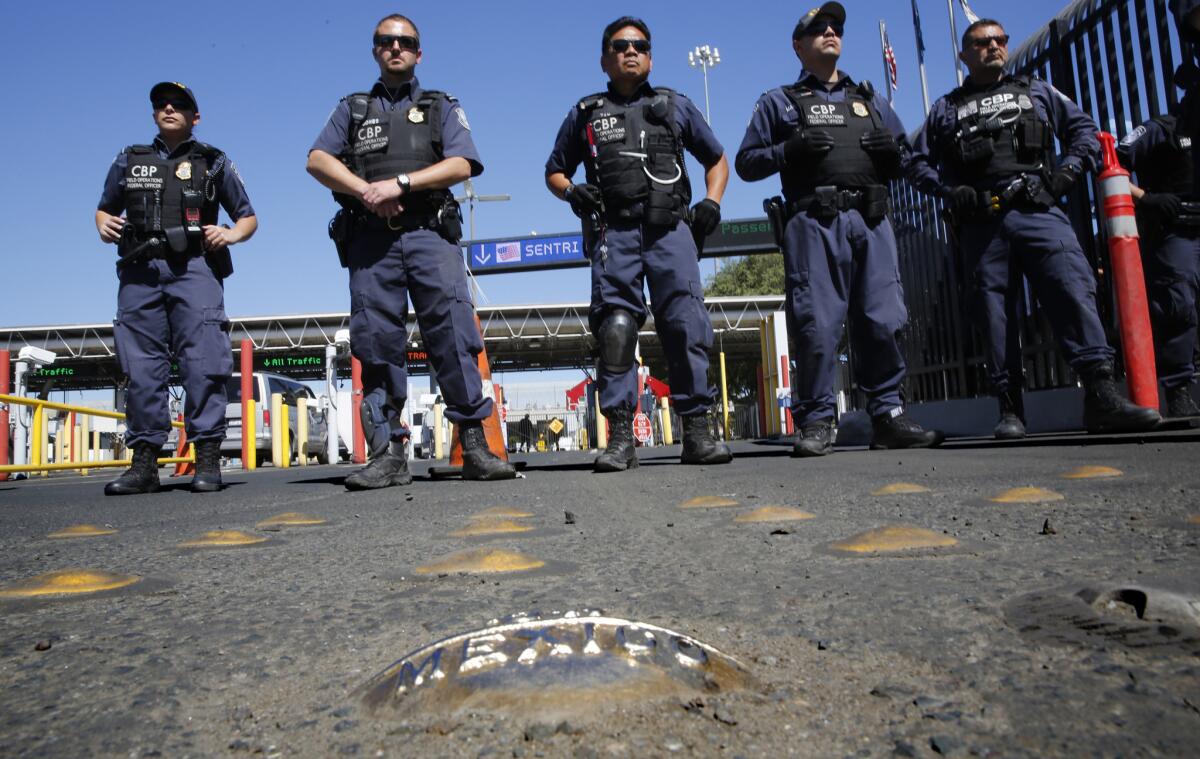Obama delays deportation review to give immigration bill a chance

- Share via
Reporting from Washington — President Obama will not make changes to the nation’s deportation system for at least two months in order to give House Republican leaders more time to search for votes for an overhaul of immigration laws, administration officials said Wednesday.
Obama asked Secretary of Homeland Security Jeh Johnson to delay completion of a formal review of the deportation system until Congress adjourns in August, giving the House time to consider legislative action before Washington is consumed by the fall election campaigns, the officials said.
Obama asked Johnson to hold off on issuing recommendations from his review “while this window for congressional action remains open,” a Homeland Security official said.
Johnson will continue to meet with opponents and supporters of immigration reform, as well as his workforce, said the official, who requested anonymity to discuss internal deliberations.
The review, which Obama had ordered in March, was expected to land on the president’s desk in early June.
Republican leaders have said that any executive action by Obama to ease enforcement of current immigration law would kill chances for House action.
Under pressure from immigration advocates, Obama had ordered Johnson to conduct a review and recommend changes that would make deportations more “humane,” especially by trying to avoid breaking up families.
Johnson was expected to recommend limiting deportations chiefly to immigrants who have been convicted of violent crimes.
But the White House became worried that slowing the pace of deportations would provoke Republican critics and make it harder for House Speaker John A. Boehner (R-Ohio) to find support for a comprehensive immigration overhaul.
An immigration bill, a top domestic priority for the president, has been stuck in the Republican-led House since last year. The Senate passed a bipartisan bill last summer that Obama said met his requirements for reform.
Some immigration advocates reacted sharply to the delay. Erika Andiola and Cesar Vargas, activists with the Dream Action Coalition, said Obama was bowing to pressure from labor unions and conservative groups that urged him to wait.
“We are appalled that after so much sacrifice and hard work from the undocumented community to pressure the President to use his power to stop deportations, some organizations ... [would] rather protect the administration instead of the millions of families separated by deportations,” they said in a statement.
One of the top targets in Johnson’s review has been “Secure Communities,” a controversial program that now ranks repeat violators of immigration law alongside violent criminals on the priority list for deportation.
Any significant change to that program would slow the pace of deportations and potentially ease concerns of immigrants who now fear any contact with police.
It also could help relieve political pressure on the White House from labor and Latino groups that have criticized Obama as the “deporter-in-chief” for what they say is his administration’s aggressive enforcement of immigration laws.
The president’s priority is to enact a permanent solution for people currently living in the shadows, a White House official said, arguing that that can “only come with immigration reform.”
Legislation should also continue to strengthen border security, modernize the legal immigration system and hold employers accountable, in the White House view.
“There’s a bipartisan consensus,” the official said Wednesday. “It’s time for them to act, and the president didn’t want the discussion of the secretary’s review to interfere with the possibility of action in the House.”
More to Read
Sign up for Essential California
The most important California stories and recommendations in your inbox every morning.
You may occasionally receive promotional content from the Los Angeles Times.












